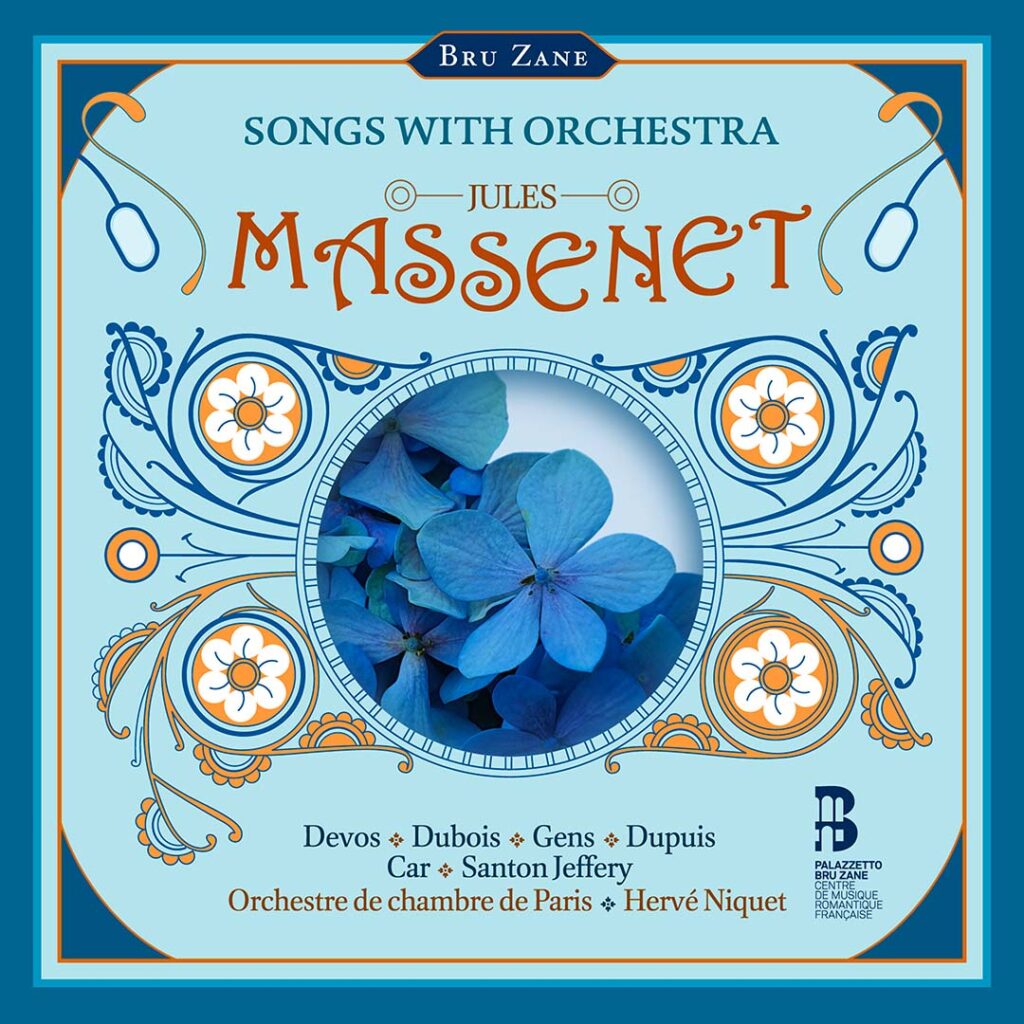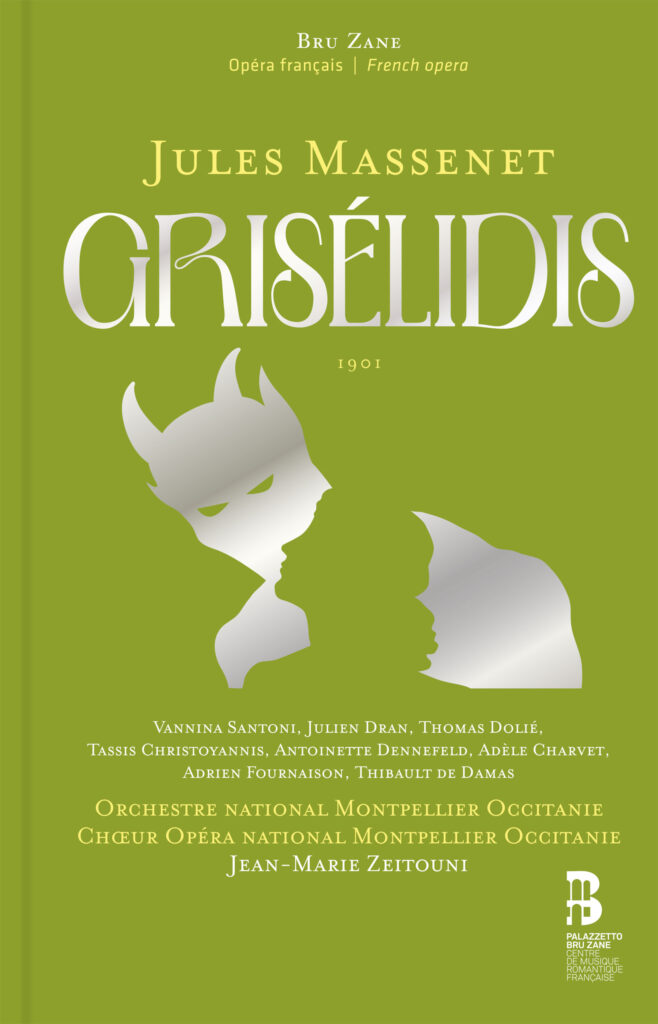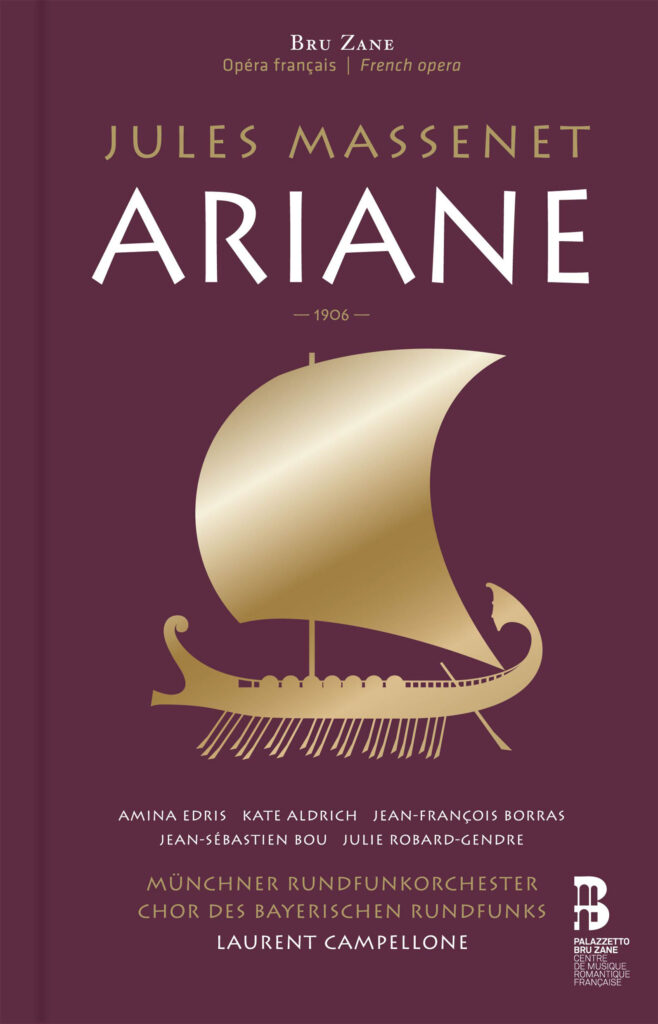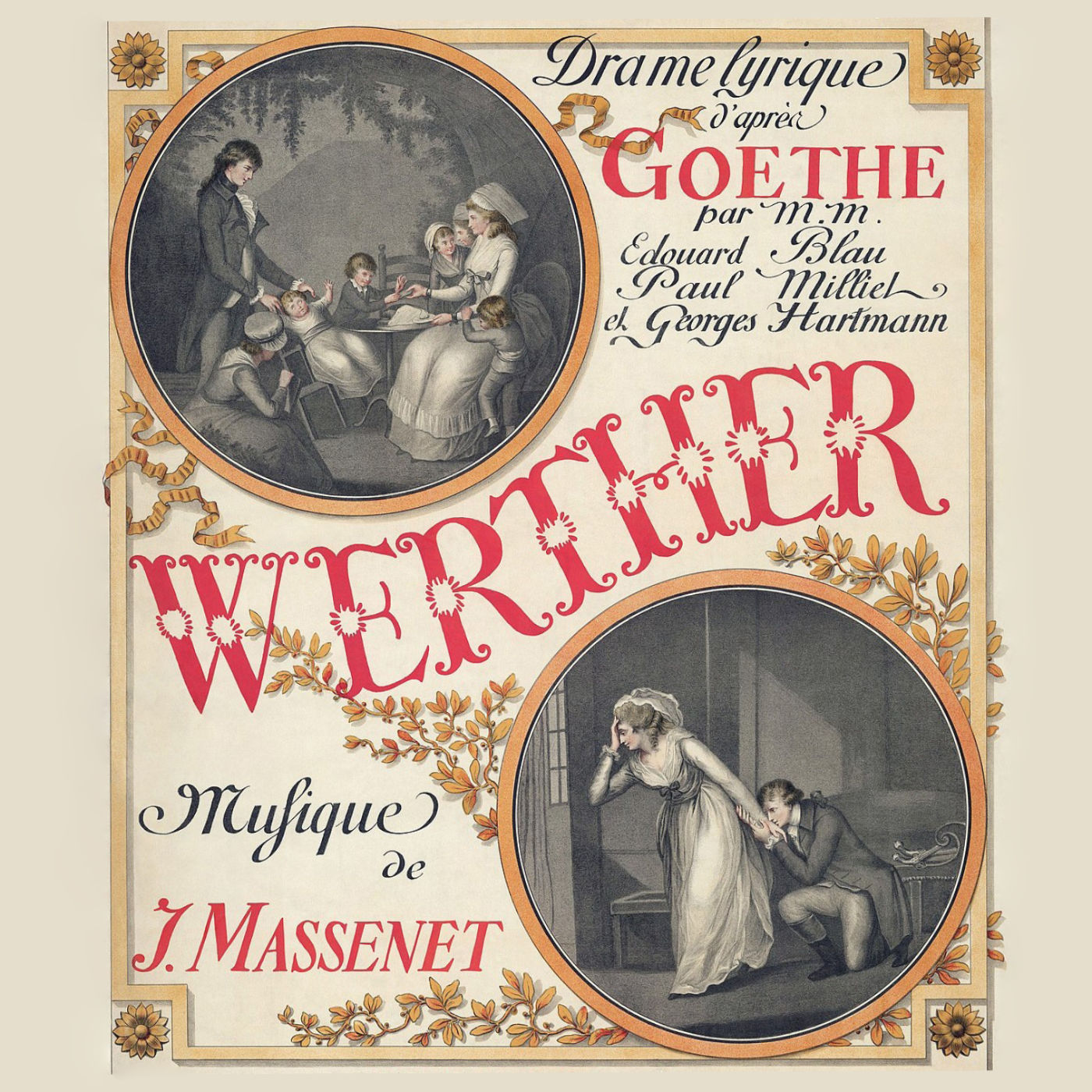Werther
Baritone version
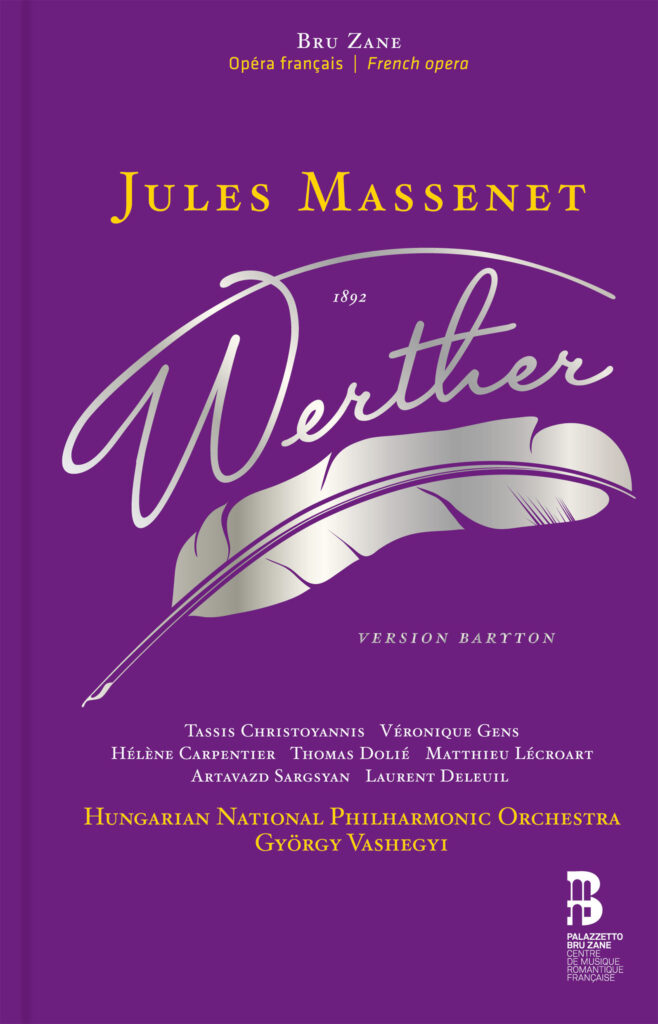
HUNGARIAN NATIONAL PHILHARMONIC ORCHESTRA
CHILDREN’S CHOIR OF THE ZOLTÁN KODÁLY HUNGARIAN CHOIR SCHOOL
with Tassis Christoyannis, Véronique Gens, Hélène Carpentier, Thomas Dolié, Matthieu Lécroart, Artavazd Sargsyan, Laurent Deleuil
Massenet’s Werther is one of those masterpieces that were rejected or shunned at the time of their creation. Sketched in the 1880s, the score was turned down by the director of the Opéra-Comique and had to make do with a premiere in German, far from Paris, before finally being heard in Paris in 1893. It gradually established itself as one of the composer’s most personal works, in which he showed himself to be as fine a colourist as he was a master of the art of the ‘motif de rappel’.
In adapting Goethe’s novel, Massenet and his librettists gave greater prominence to the character of Charlotte, thus placing the struggle between duty and passion at the centre of the narrative. The role of Werther, originally assigned to a tenor, was also sung by the baritone Mattia Battistini with the composer’s approval. Provided the singer makes skilful use of voix mixte, this version gives the work a melancholy colouring ideal for portraying its hero’s suicidal temperament.
Tassis Christoyannis follows this approach in exemplary fashion, opposite the reserved yet moving Charlotte of Véronique Gens. Both singers give the text the preponderant role allotted to it by French operatic tradition.
Recorded at the Béla Bartók National Concert Hall, Müpa Budapest (Hungary), from 18 to 22 February 2023.
Éditions Heugel.

Table of contents
Alexandre Dratwicki, The ‘baritone’ Werther: why awaken him?
Jean-Christophe Branger, Werther, or ‘poetic reality’
Jules Massenet, Memories of the theatre. Werther
Henry Ferrare, Mattia Battistini in Paris
Synopsis
Libretto
Cast - Tracklist


 Torna indietro
Torna indietro  newsletter
newsletter webradio
webradio replay
replay



